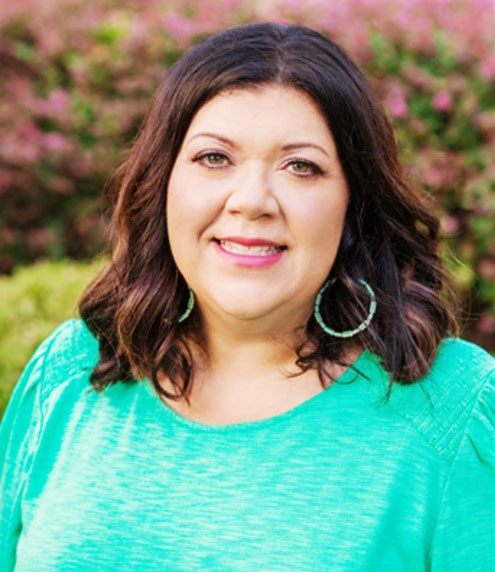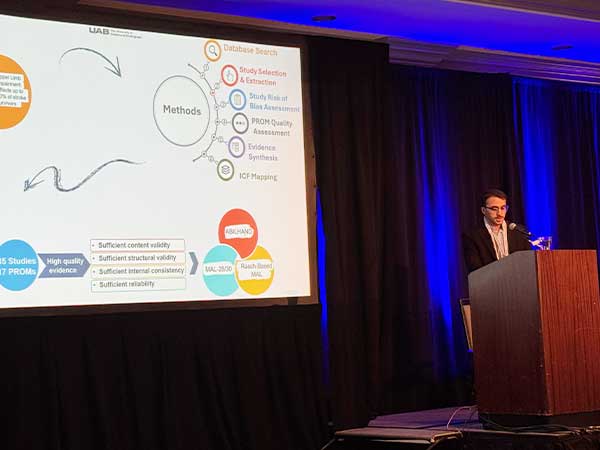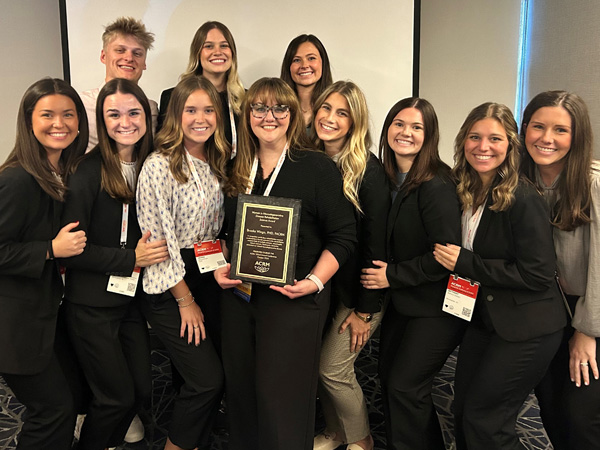 Editor’s note: James DeLano is a joint writing intern with CEDHARS and the UAB Institute for Human Rights. He is a freshman at UAB in English, with a concentration in professional writing, and minoring in human rights. He plans to go into library science with a focus on disability access and equity in libraries.
Editor’s note: James DeLano is a joint writing intern with CEDHARS and the UAB Institute for Human Rights. He is a freshman at UAB in English, with a concentration in professional writing, and minoring in human rights. He plans to go into library science with a focus on disability access and equity in libraries.
April Turner is the Director of the Traumatic Brain Injury Program in Alabama. Since being named director in 2019, Turner has made Alabama one of the nation’s leading states in TBI supports and services. She recently interviewed with CEDHARS to discuss life after a traumatic brain injury and resources she believes more people should know of.
-
What TBI-related resources would you recommend UAB students and the general public take special note of?
Nationally, I would recommend The National Association of Head Injury Administrators (NASHIA), the Federal Administration on Community Living, the CDC for concussion protocolsCDC for concussion protocols, The Centers of Excellence for Military, and TBI Model Systems.
In Alabama, anyone can find links to all those resources on our Alabama TBI Grant Website. This website also carries the TBI Brain Map to Resources for the state of Alabama. The lead agency for Traumatic Brain Injury in Alabama is the Alabama Department of Rehabilitation Services. ADRS is a source of information, referral, resource facilitation, education and care coordination for individuals with brain injuries, their families, professionals and the community.
It also provides community reintegration, counseling, cognitive remediation, TBI education/training, Trauma Registry service linkage and transition services to schools, communities, and/or employment. ADRS oversees the Adult and Pediatric Care Coordination Programs, the TBI Trauma Registry, The Alabama Head and Spinal Cord Injury Trust Fund, The Alabama Head Injury Task Force and Advisory Board, the TBI Navigation System and Helpline, the Online Brain Injury Screening and Support System, The Teacher Acute Concussion Tool and two Federal ACL TBI Grants.
Other resources: Alabama Head Injury Foundation is our non-profit partner. Our two rehabilitation hospitals - UAB Spain, TBI Model System, Heersink School of Medicine, and Children’s of Alabama Rehabilitation Medicine - and we also partner with many other hospitals, community and state agencies who address TBI in areas of mental health and substance use, veterans, intimate partner violence, children, law enforcement, foster care, The Unhoused, Corrections and Senior Services. Please visit www.alabamatbi.org for more information.
Our Statewide TBI Helpline is (888) 879-4706
-
What TBI-related resources would you recommend healthcare providers take special note of?
Make sure every family is given the helpline number and the website information.
-
What advice do you have for UAB students regarding TBIs?
There is one place to call to get information regarding TBI, services and supports - TBI Helpline and 1-888-879-4706 - and one website with access of many Alabama TBI Resources and Training - www.alabamatbi.org. ADRS provides TBI 101 training, services, and supports. Do not believe everything you read on social media and in the movies on TBI. Learn from the experts - you have the best at Spain Rehab on campus. TBI can happen to anyone anytime and anywhere. There are supports for recovery and resiliency in the community, as well.
-
What advice do you have for healthcare providers regarding TBIs?
Find your state TBI agency, programs and nonprofits in your area and know how to refer [to them]. One referral could save someone’s life. The adjustment to a recent injury, loneliness, hopelessness and lack of socialization can hinder progress in returning to the community. Many individuals get misdiagnosed as severely mentally ill, are over medicated, prescribed opioids and their suicide risk increases after a TBI. The sooner you can refer someone for community services after injury the better the trajectory in long term recovery. Lastly look into careers at ADRS. We are looking for talented individuals in many areas, especially in counseling and social work who we can educate in working alongside our individuals with lived experience.
-
What can people do to improve awareness of the long-term and short-term effects of TBIs?
Get involved with March-Brain Injury Awareness Month. There is always a Congressional Brain Injury Awareness Day, which will be held in February of next year. ADRS TBI Program has lists of books, resources, movies, research articles, one pagers, YouTube videos and online trainings, and we just finished our Alabama TBI Summit. Simply distribute the small TBI Navigation Cards with the state helpline number and QR Code leading to alabamatbi.org and the brain injury screener. Volunteer and support our state nonprofit - Alabama Head Injury Foundation. Request individuals with lived TBI experience to come speak at your event. There are individuals with TBI’s employed in every level in our state and many are fantastic advocates and love sharing their journey.
-
What resources can people use to improve their knowledge about TBIs?
For students and professionals, start with the Journal of Head Trauma and research evidence-based practices. Many individuals and families are looking for a quick fix - do your research on evidence-based practices. The National Academies of Science in Medicine TBI Forum has cutting-edge research. The TBI Model Systems all over the U.S. has years of research and data that shows evidence-based practices for individuals with TBI and NASHIA is leading the way in bringing state and community resources together with innovative practices and trainings, nationally. For brain injury screening information see www.nashia.org/obisss.
-
For individuals with TBI and their Caregivers
In Alabama, go to the resources listed under the first question or go to www.alabamatbi.org. There is an entire family of professionals and survivors around our state. Through the Alabama Head and Spinal Cord Injury Trust Fund, we have community services, resource navigation supports, screening, support groups, independent living services, camps, advocacy/advisory council, respite care, peer and caregiver supports. Call the Helpline and get connected.

